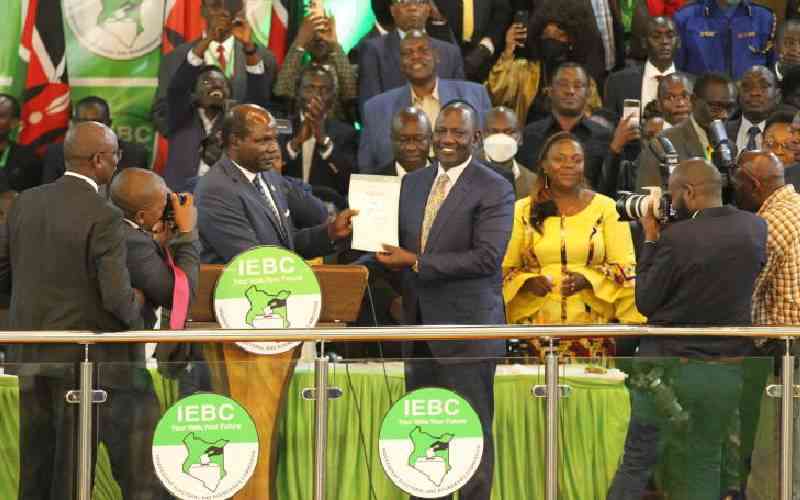
The August 9 presidential elections stand disputed on three grounds; declaration of William Ruto as President-elect by Wafula Chebukati, rejection of the declaration by four commissioners of IEBC and rejection of the declaration by Raila Odinga
From the onset, the protest and rejection of the declaration of the final tally by four Independent Elections and Boundaries Commission (IEBC) commissioners is profound. They have raised important triable questions about the manner of computations of forms 34 A at the Bomas of Kenya tallying centre.